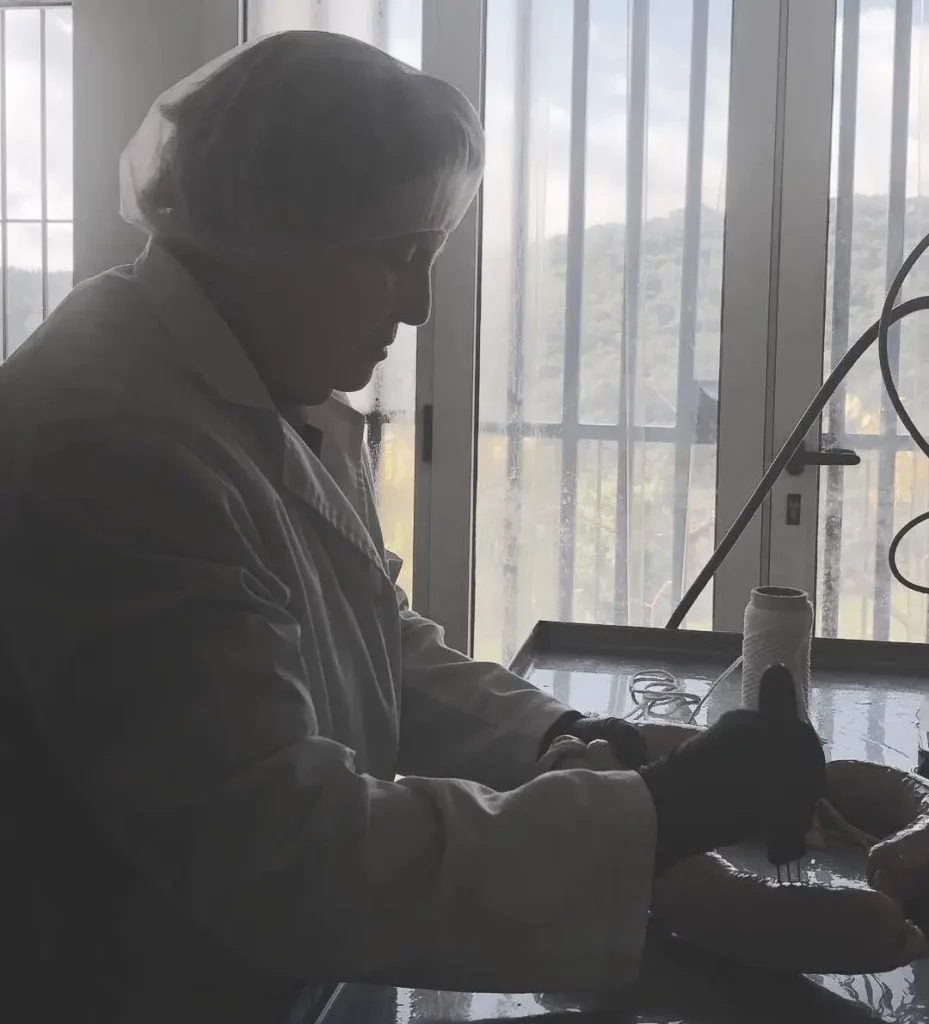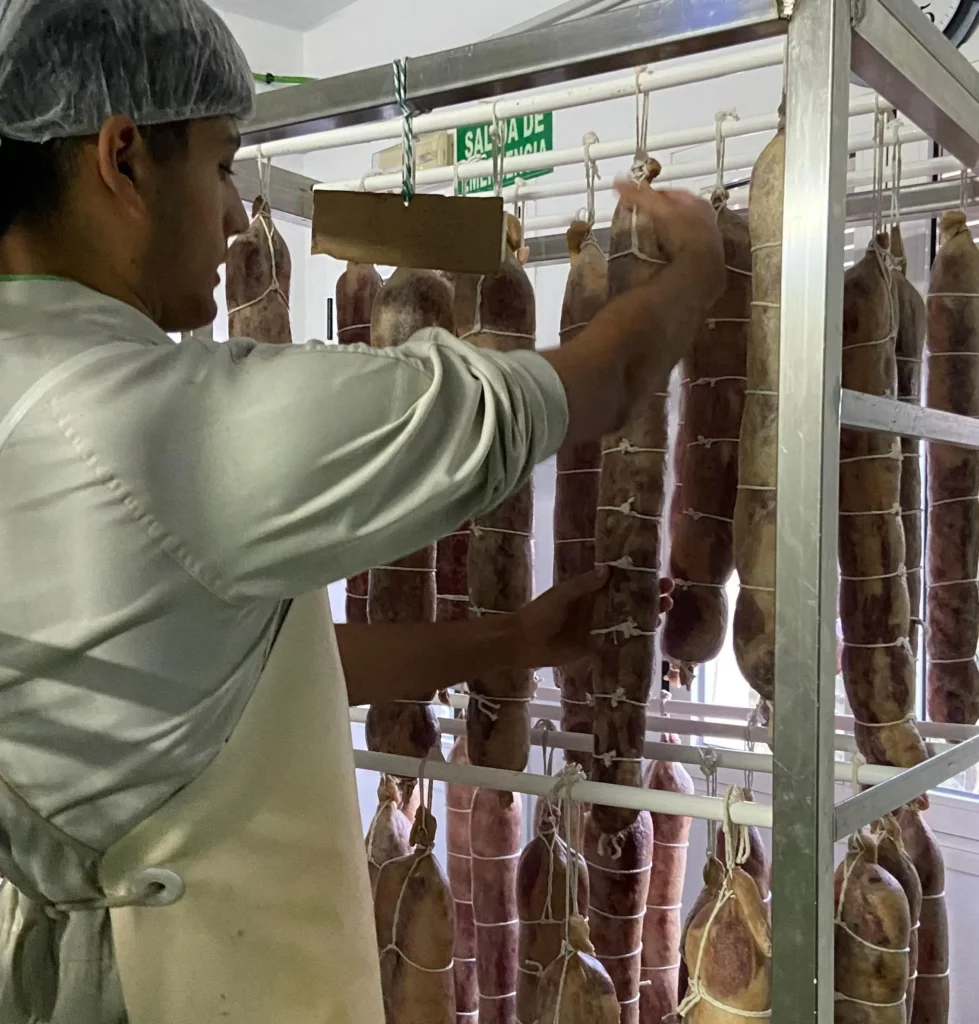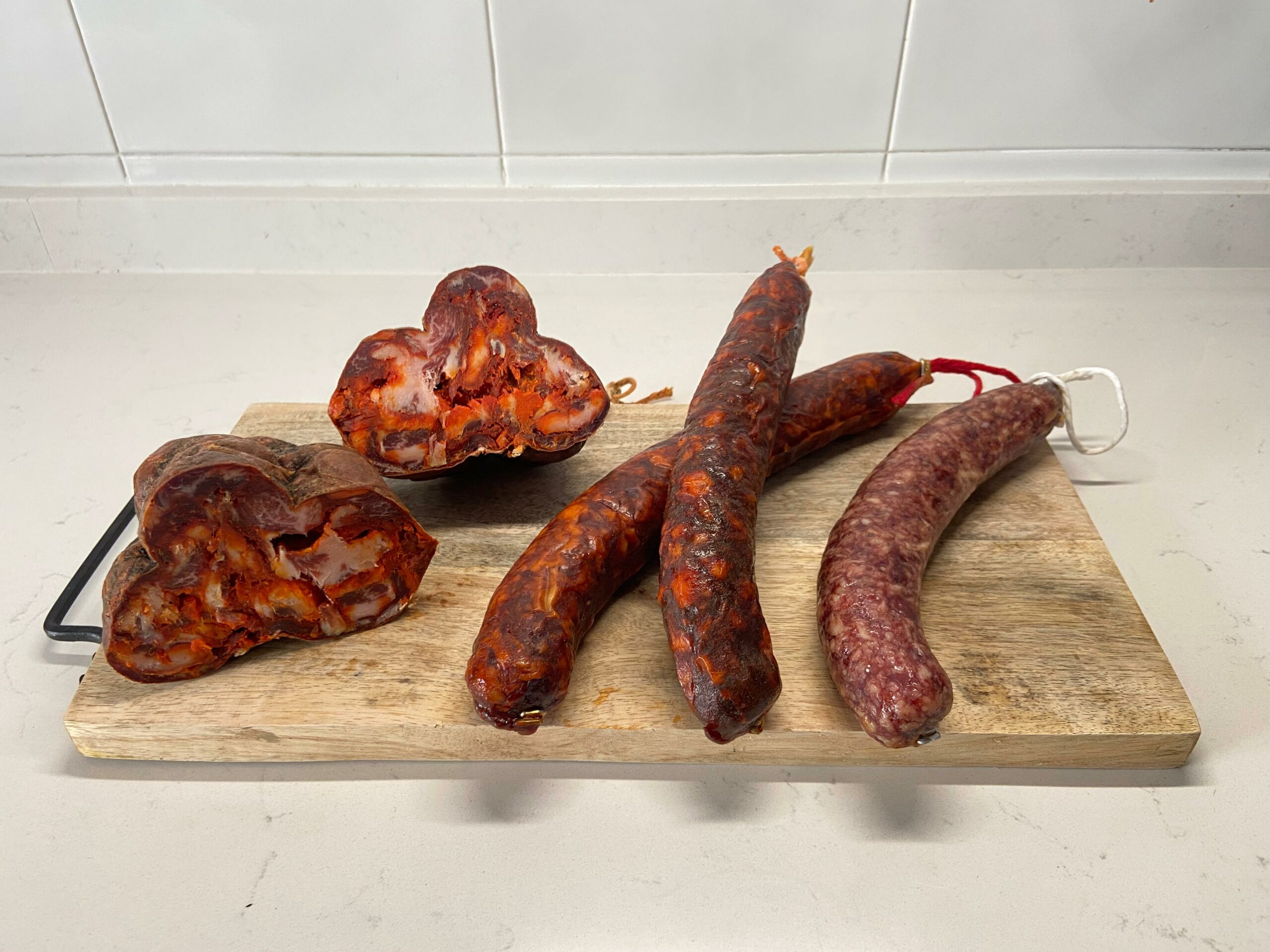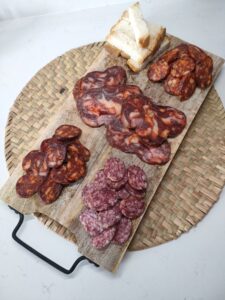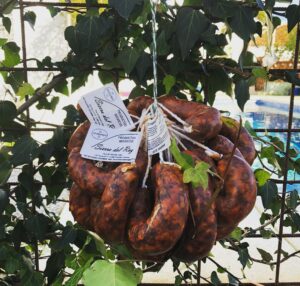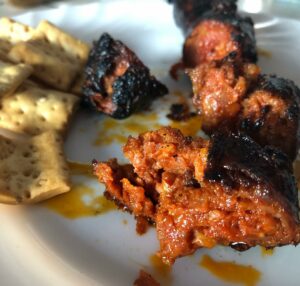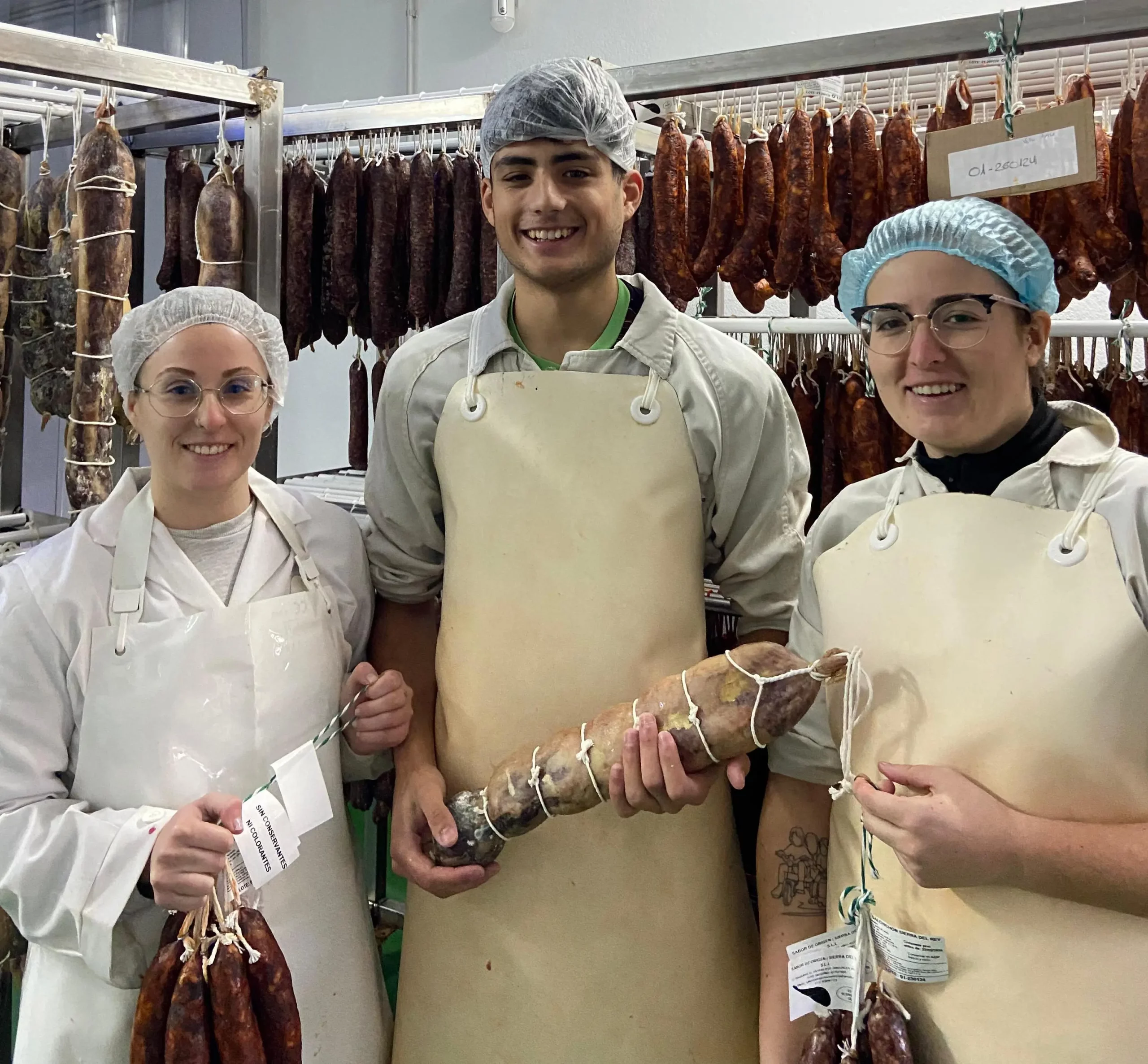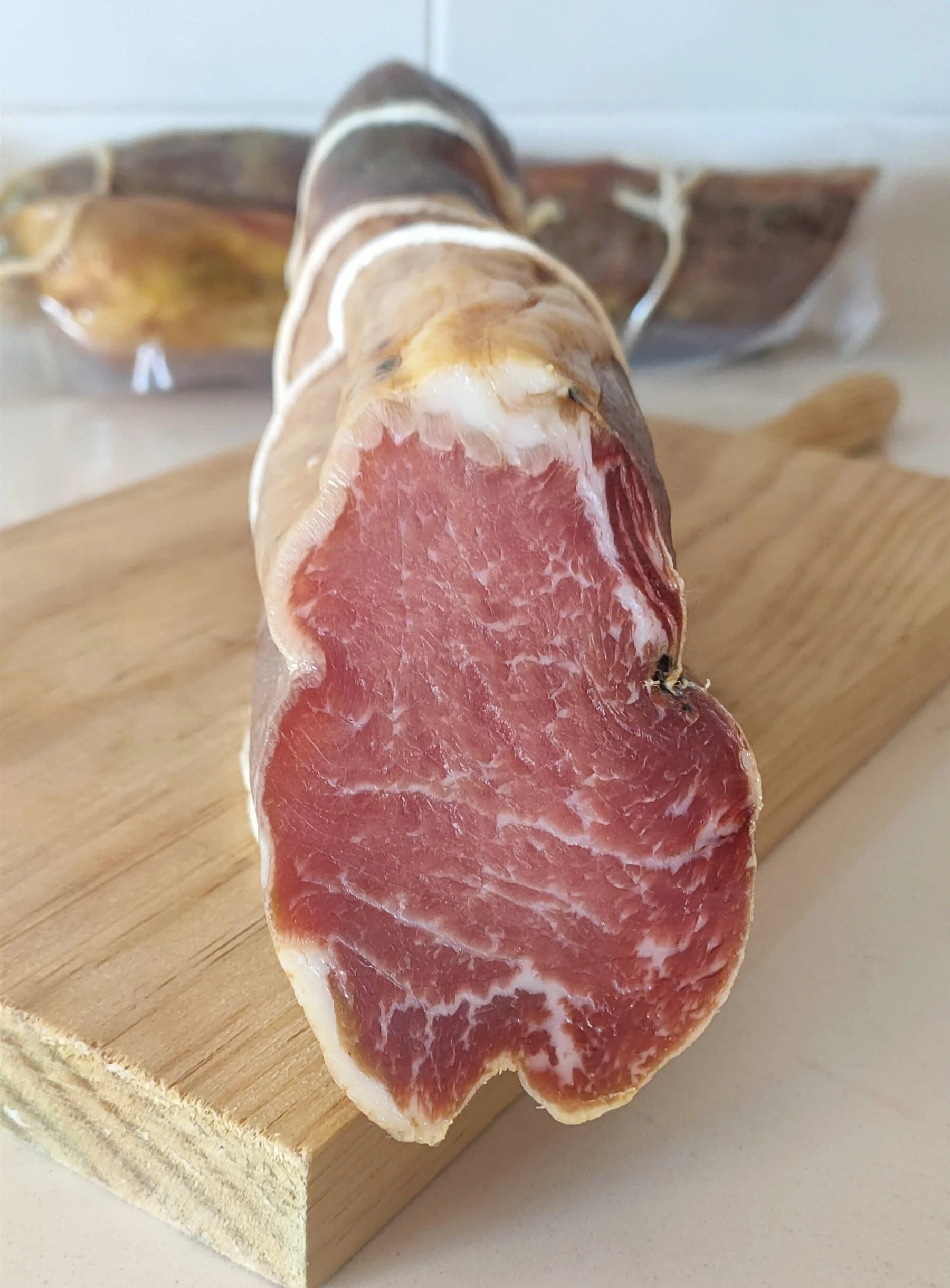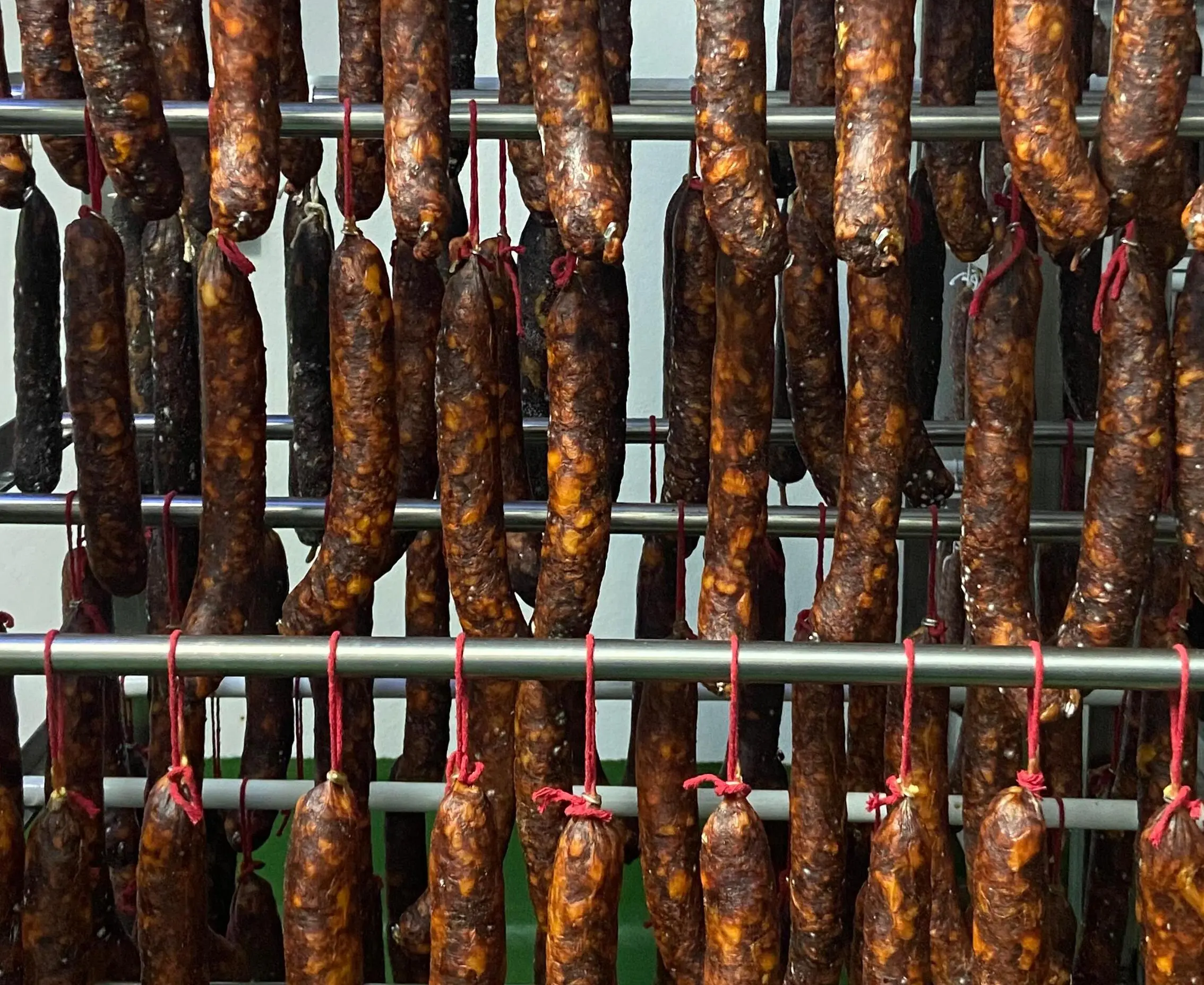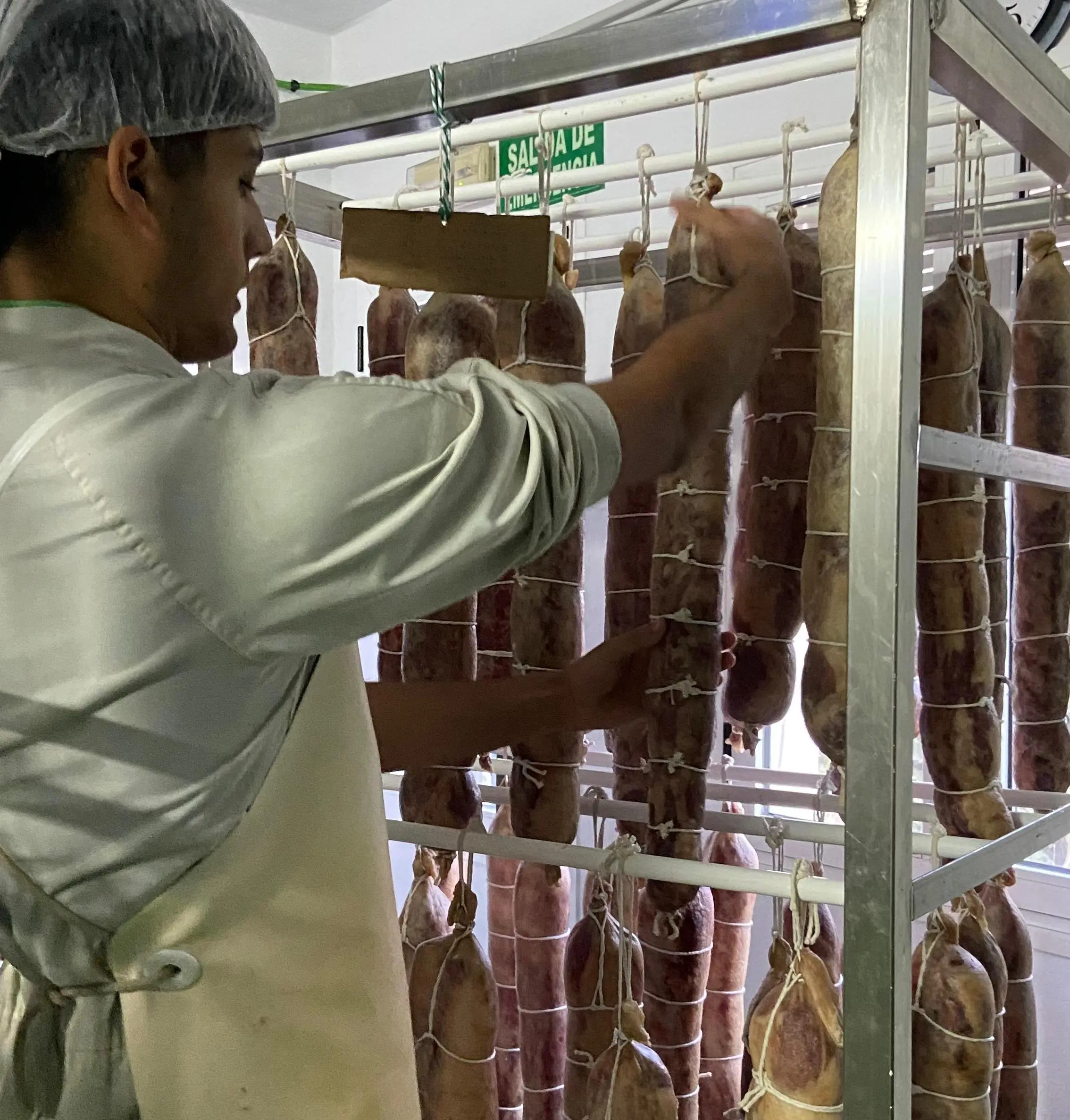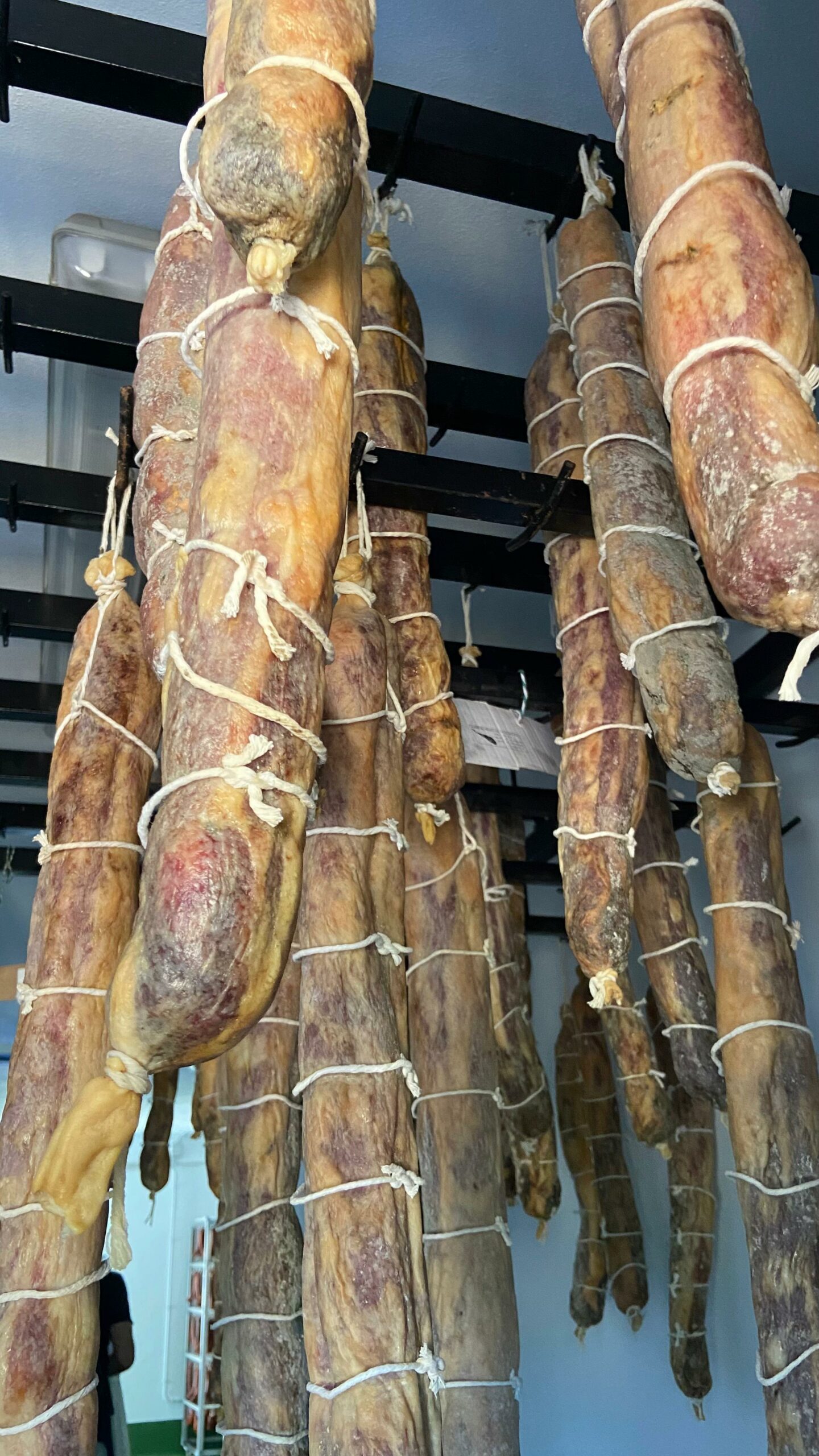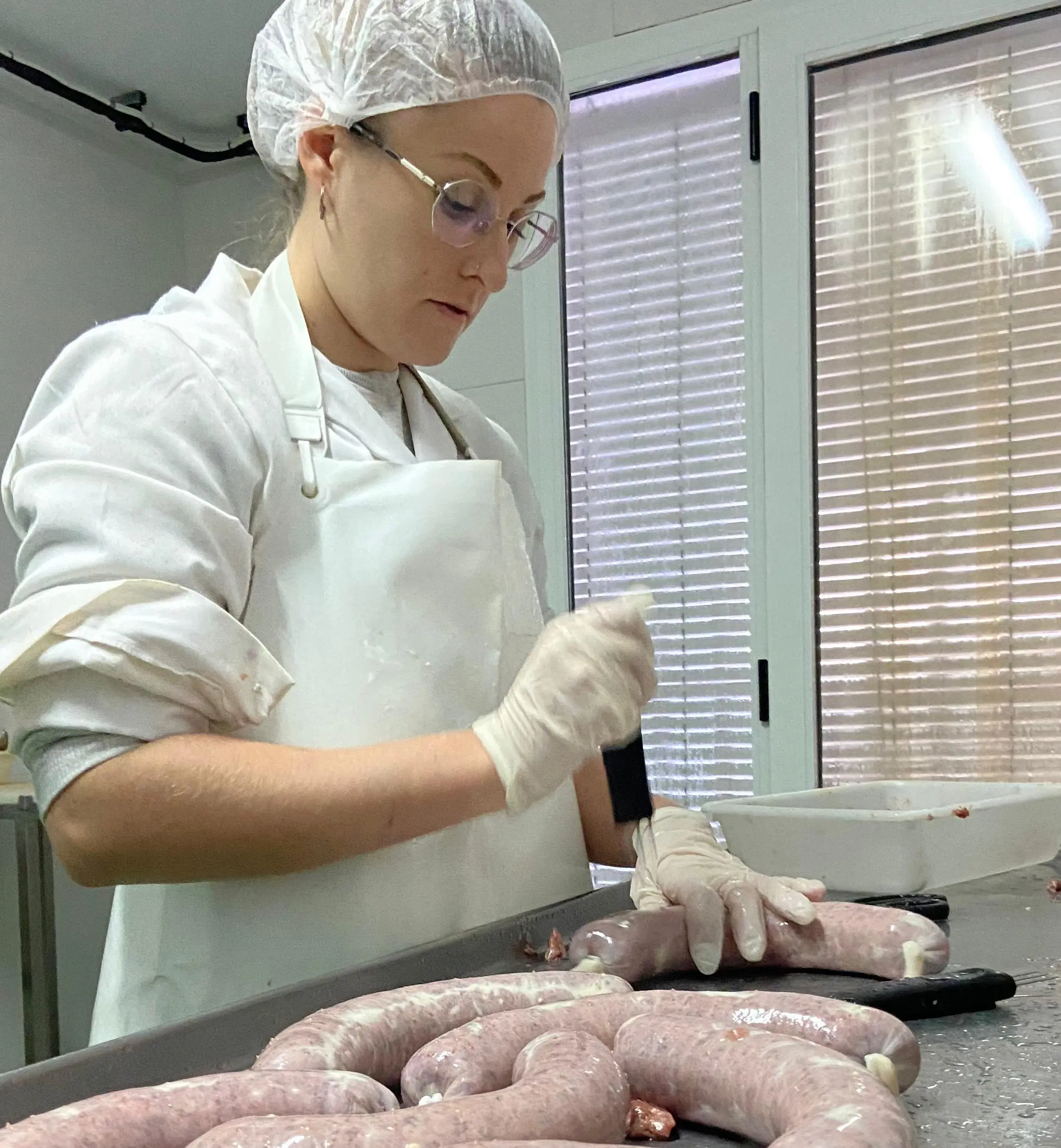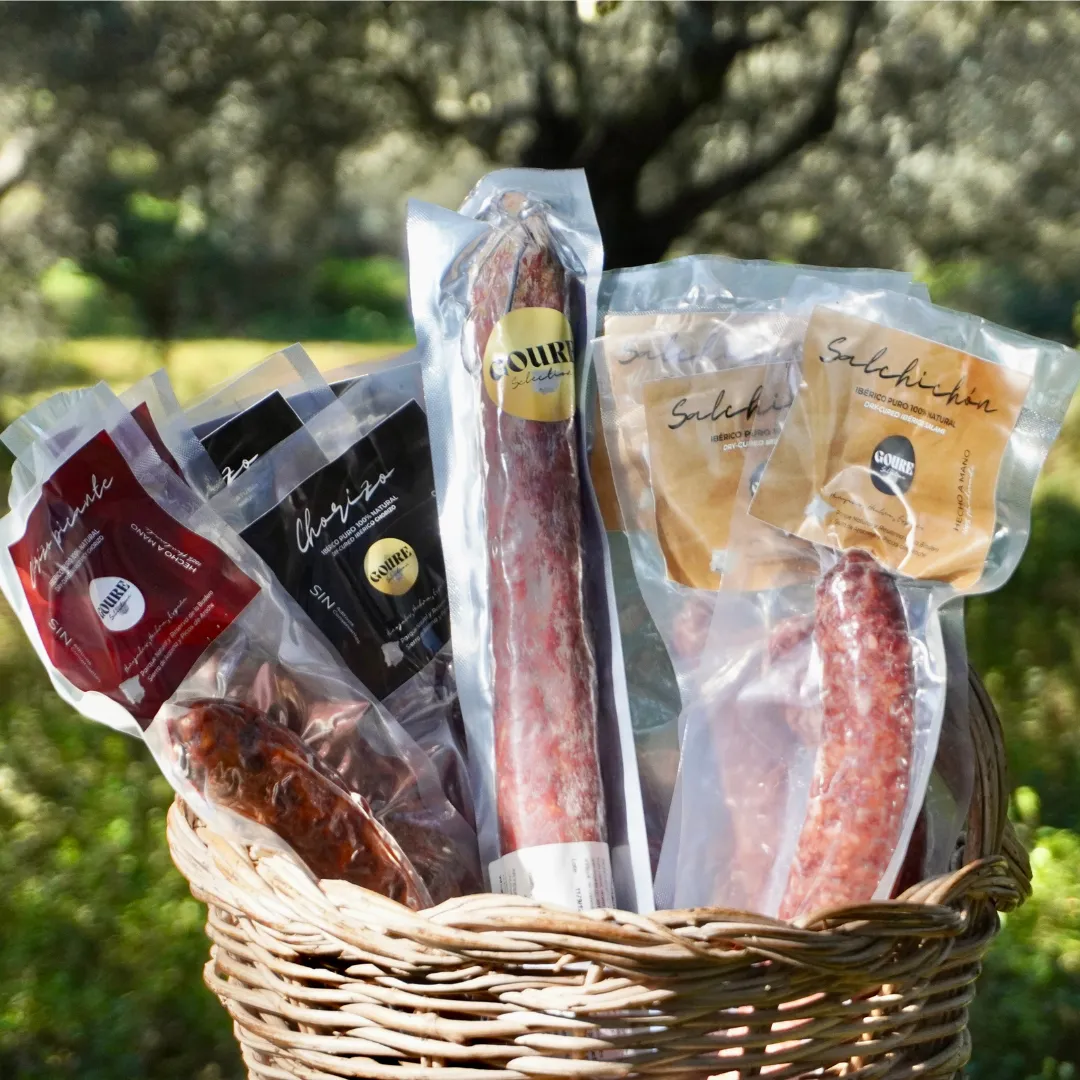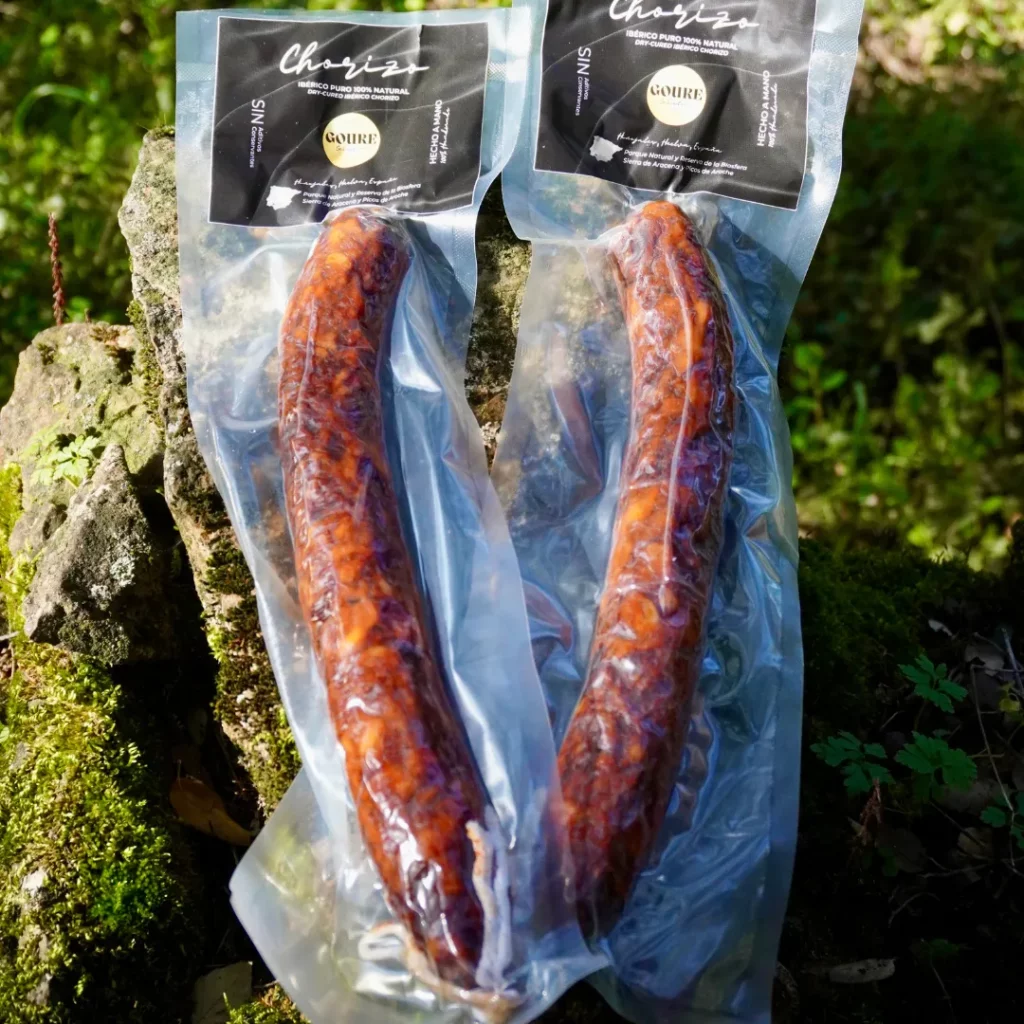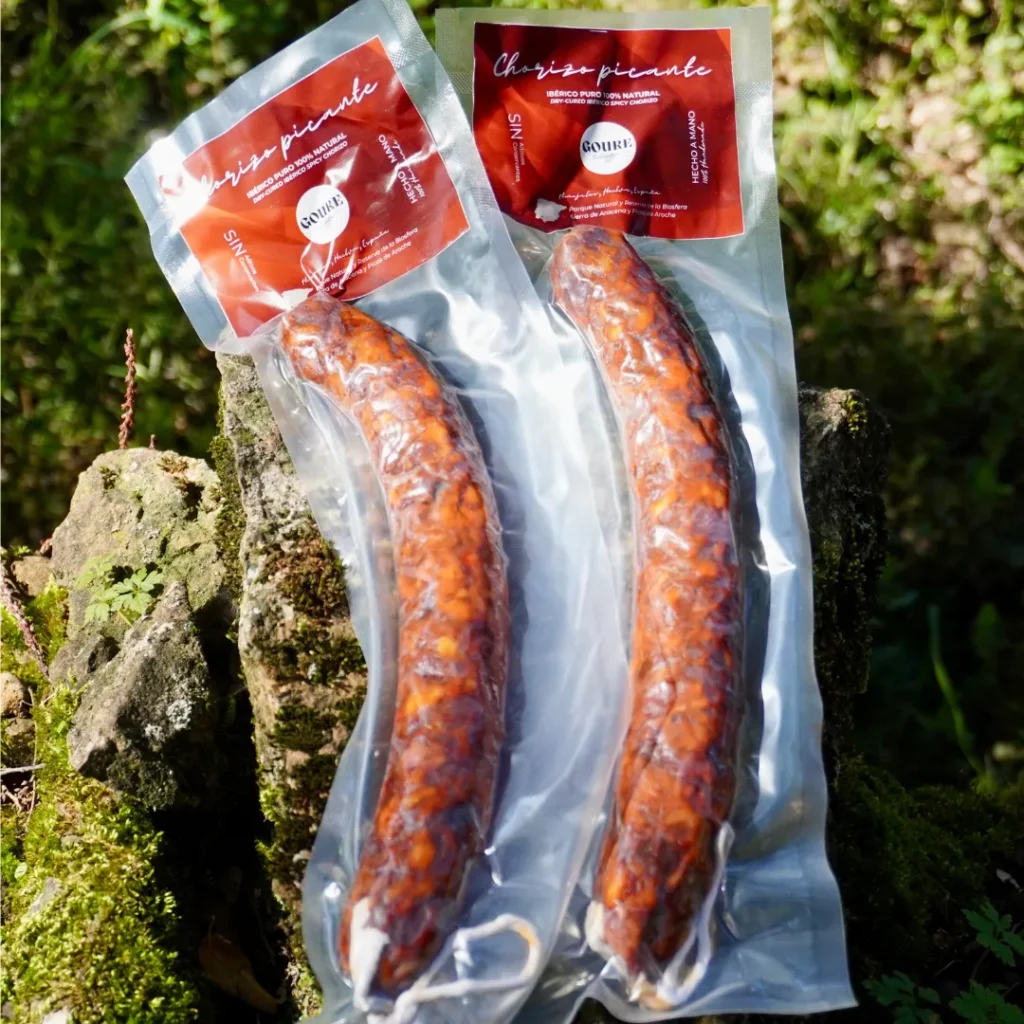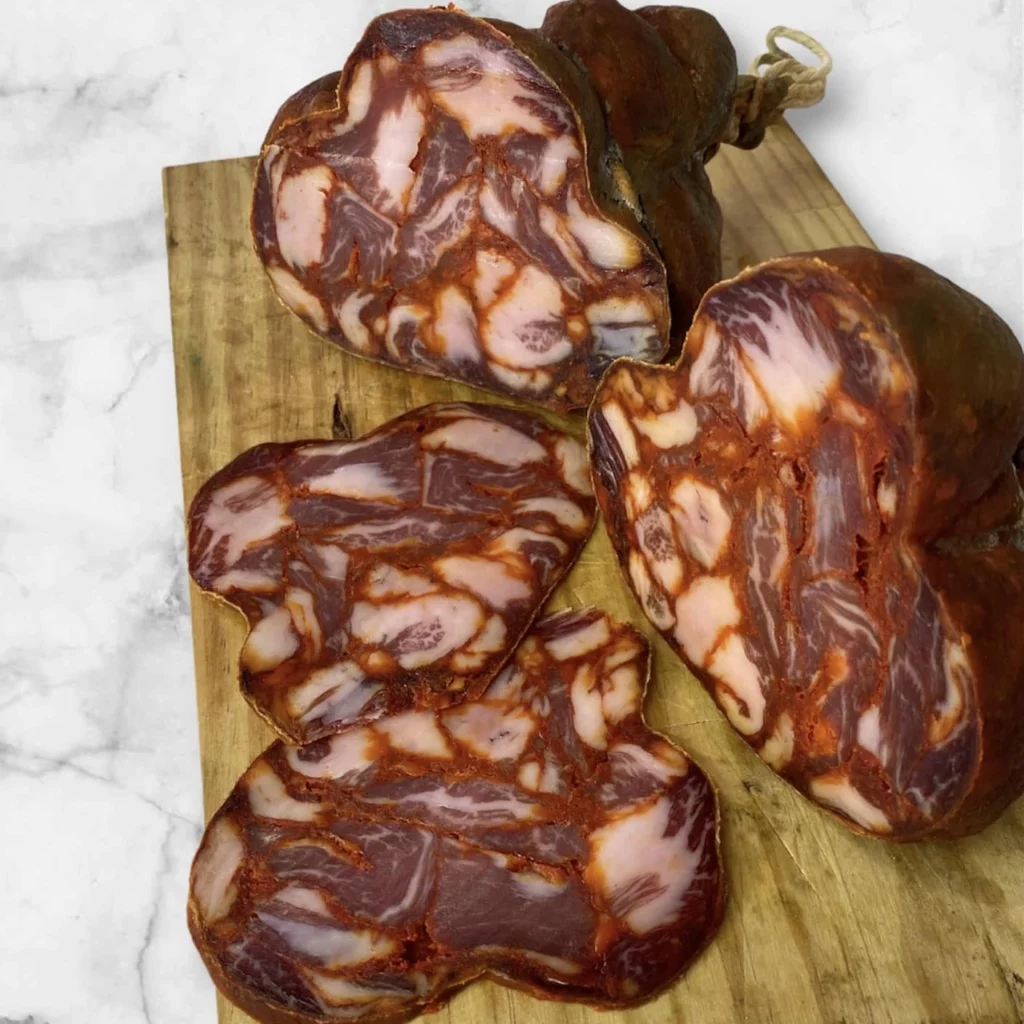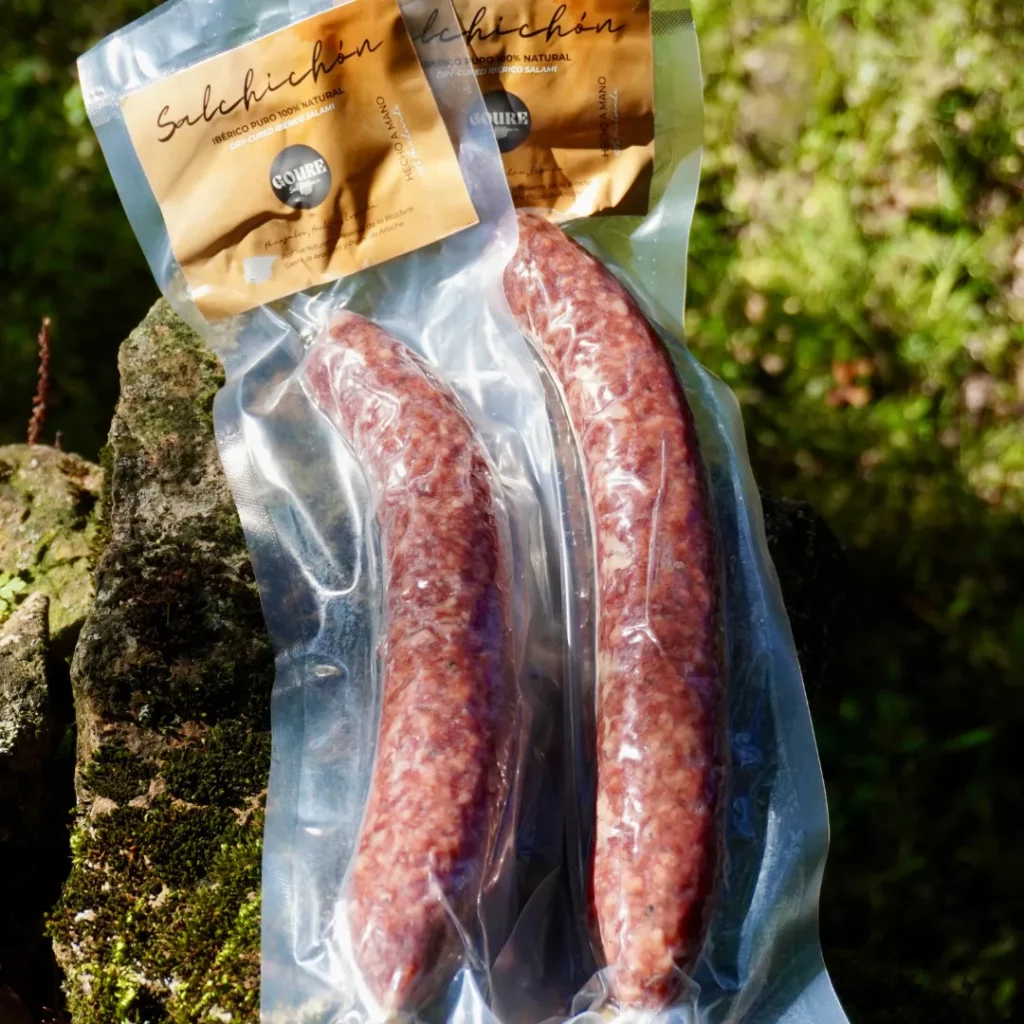Ana Delgado
Since I was in high school, my visits to my aunt and uncle’s cured meats factory were one of my favourite hobbies at weekends. At that time I would never have imagined that a few years later it would be my cousin Adrià, my sister María and I who would be in charge of the factory’s operations.
At first I started helping to prick the cured sausages. Many afternoons I met Adrià there and together we went through the stages and learned the techniques and know-how that the artisan production of charcuterie requires. Now it is my sister María who is learning to stuff the different cured meats, to prepare the dressings, to cut the pieces of noble meats and to stuff the sausages.
Each day I like what we do more. When you start your own business, you don’t just have to produce charcuterie, you also have to attract customers, work on logistics, promote your project, etc. Being on the move is something that is in my DNA and I’m really enjoying it.
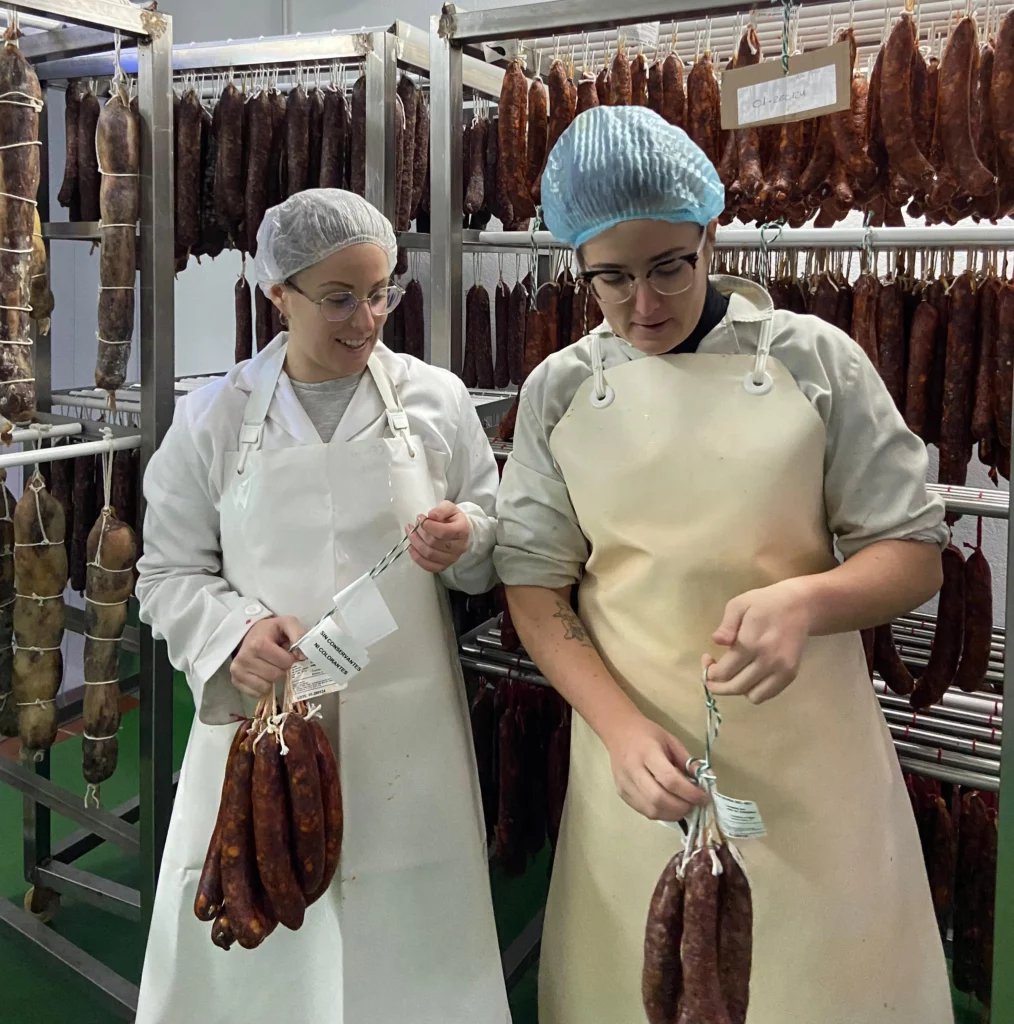
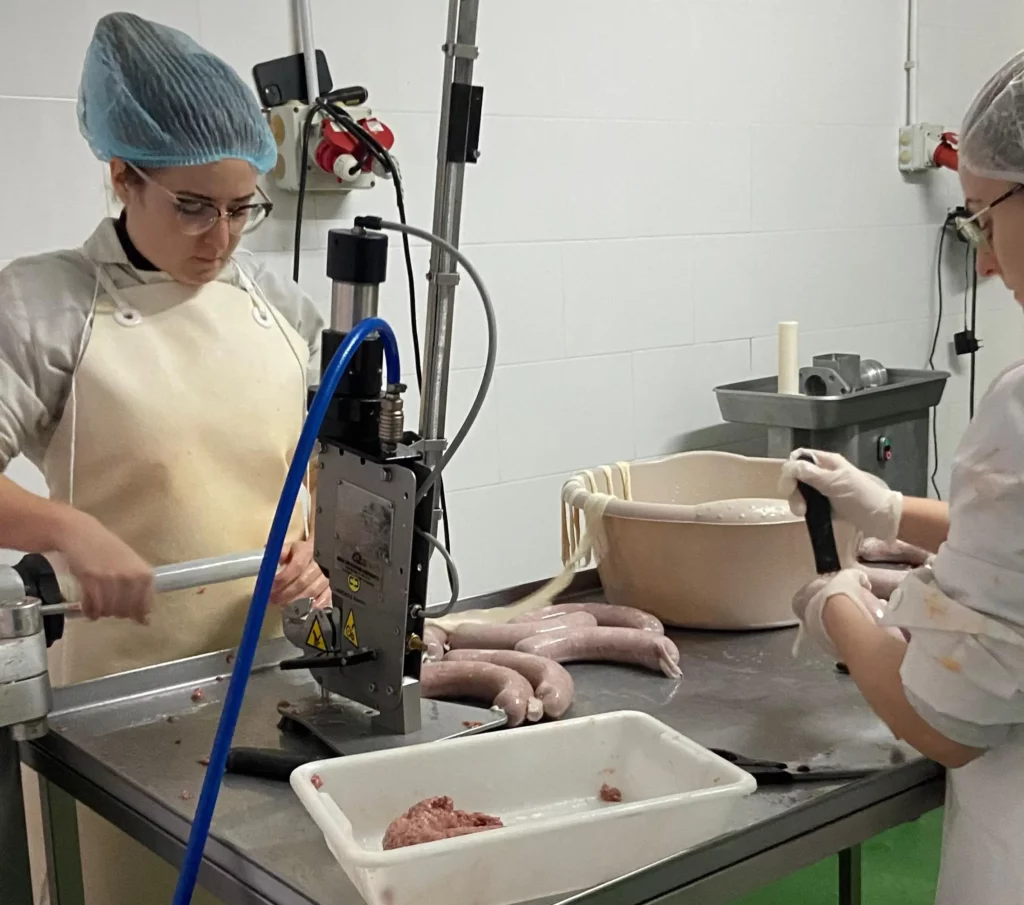
Nature at the forefront
Elaboration, curation, environment, ingredients, flavour, taste, aroma… All of them have a common point that stands out above the rest in this young family project: naturalness.
Located in the heart of the Sierra de Aracena y Picos de Aroche Natural Park, in the area of the Jabugo Designation of Origin, its charcuterie factory has one of the ideal climates for the production and curing of Iberian cured meats.
Unlike large meat companies where the entire production process is carried out by machines in large volumes and in a standardised manner, giving identical products as a result, this artisan factory is characterised by the fact that its charcuterie products are produced one by one. The chorizos and salchichón are made using a small grinding machine, while the loin sausages are stuffed into casings by hand by several people. This is why their sausages are all unique and different from each other.
When curing their products, they do not use cold rooms that artificially control the temperature and humidity. They mature their sausages only in winter (from December to March) in a natural way, taking advantage of the north to south wind. This is how it used to be done in the old days when there were no electronic devices. Natural curing.
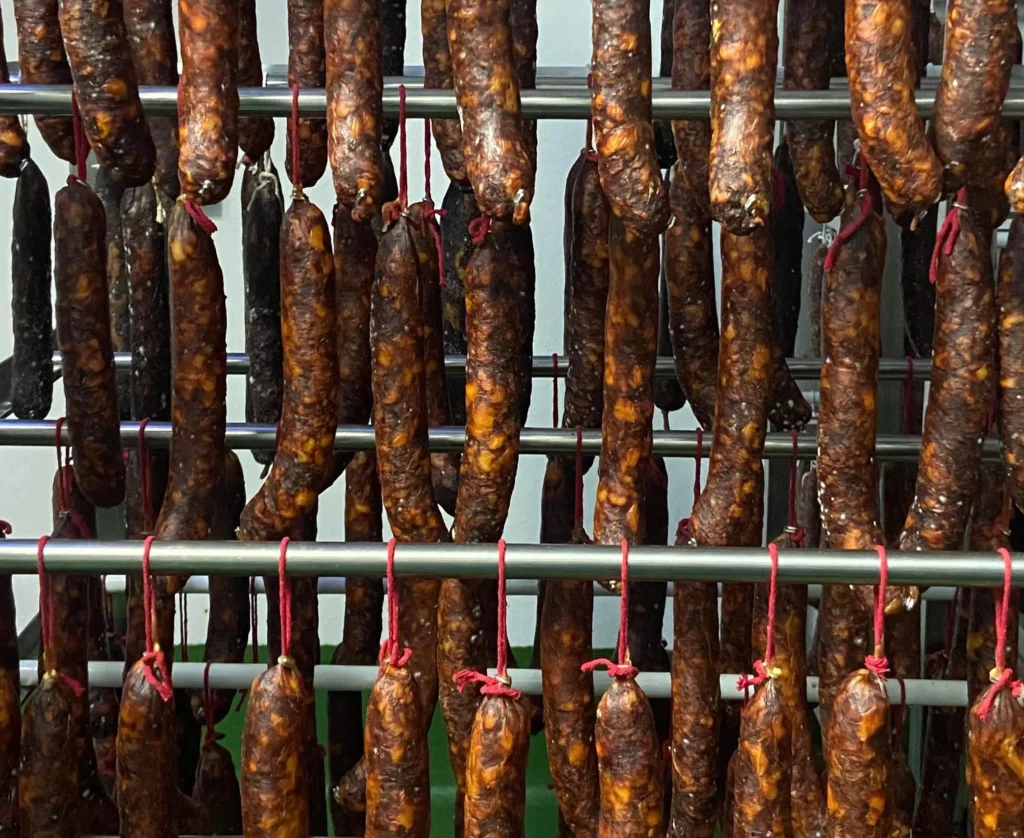
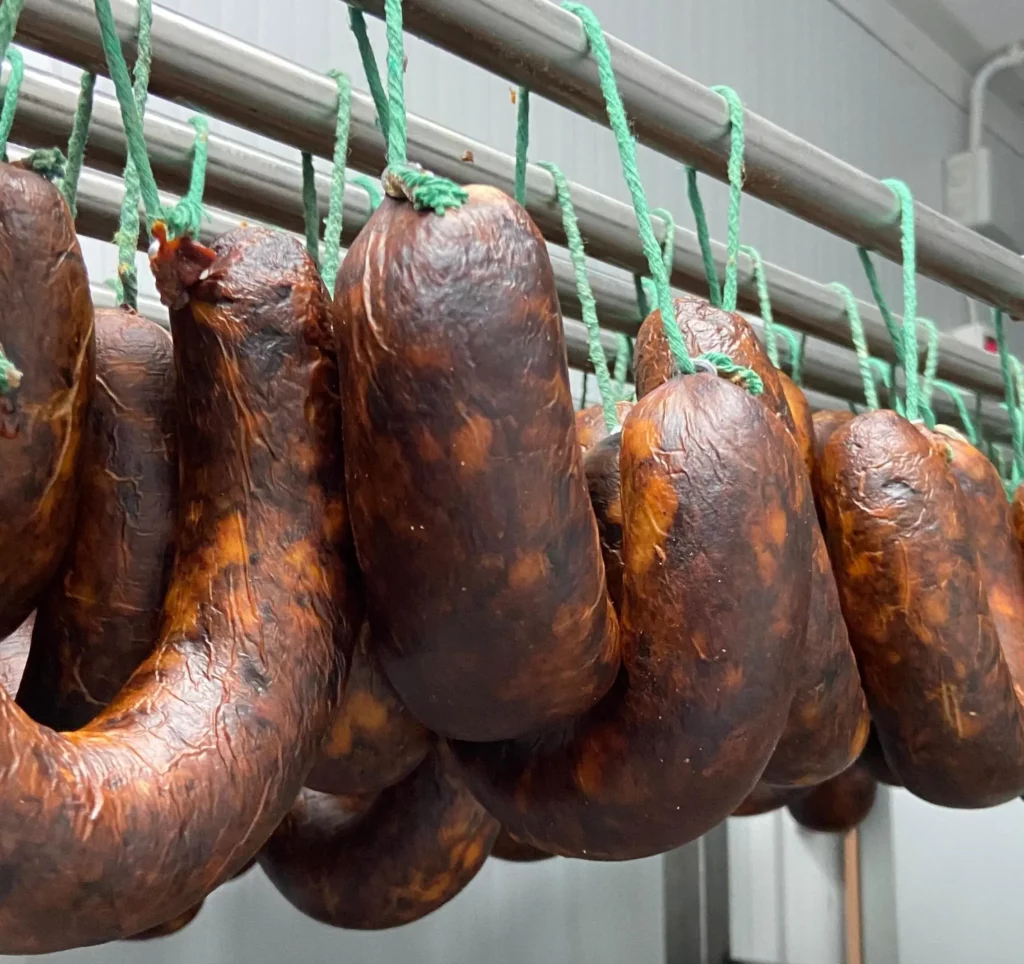
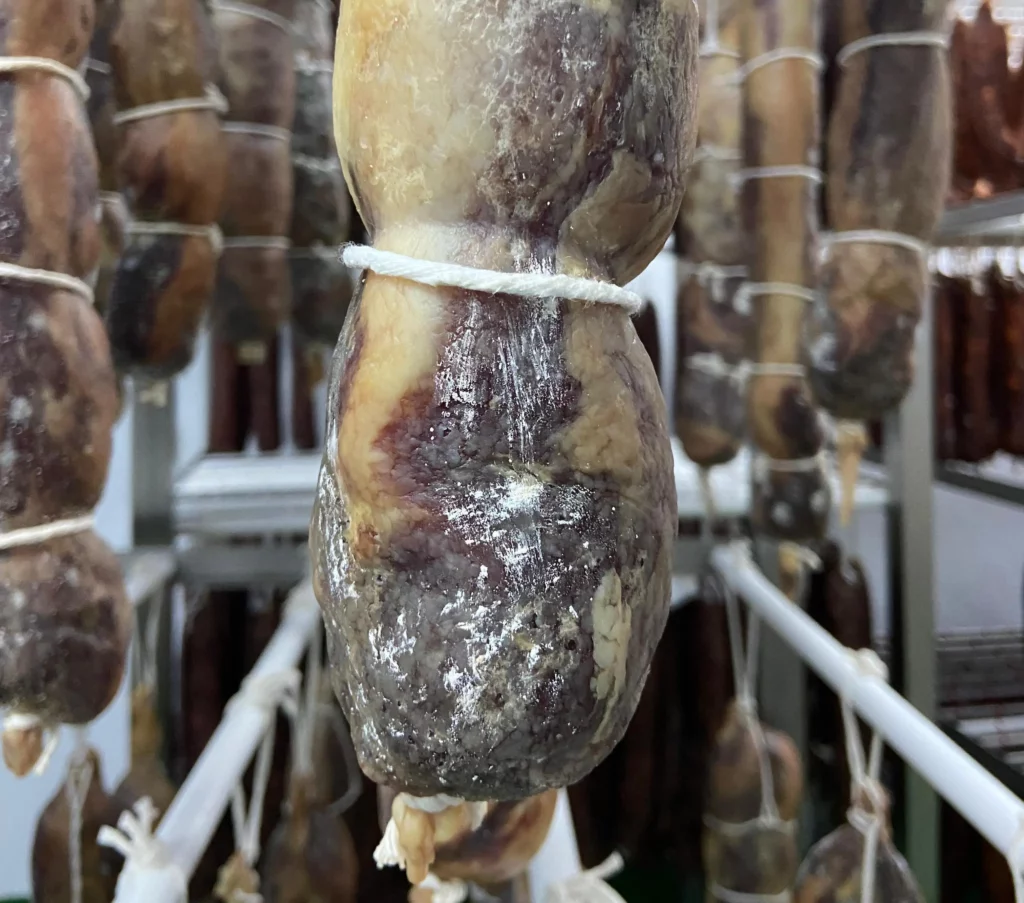
A family story
It was Pabli and Rosi, (Adrià’s parents) who started the sausage factory in 2013 with the aim not only of providing a family income, but also of recovering the flavours and aromas of the traditional charcuterie of Hinojales.
María (Pabli’s mother) and her sister Casilda were the ones who shared their wisdom and knowledge about the process and elaboration techniques, the recipes for the natural seasonings, etc. that they had learnt since they were young by participating in the traditional slaughters carried out by their family. We must not forget that charcuterie, which is now seen as a delicacy, used to be a necessity for preserving food.
After more than a decade of producing Iberian cured meats with the flavour of yesteryear, Pabli and Rosi have handed over the baton to three young entrepreneurs who promise to continue an almost extinct family legacy in a sector that is increasingly dominated by the large meat industries.
